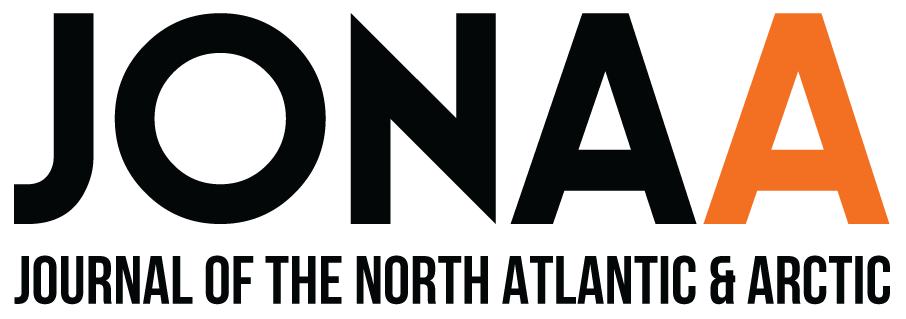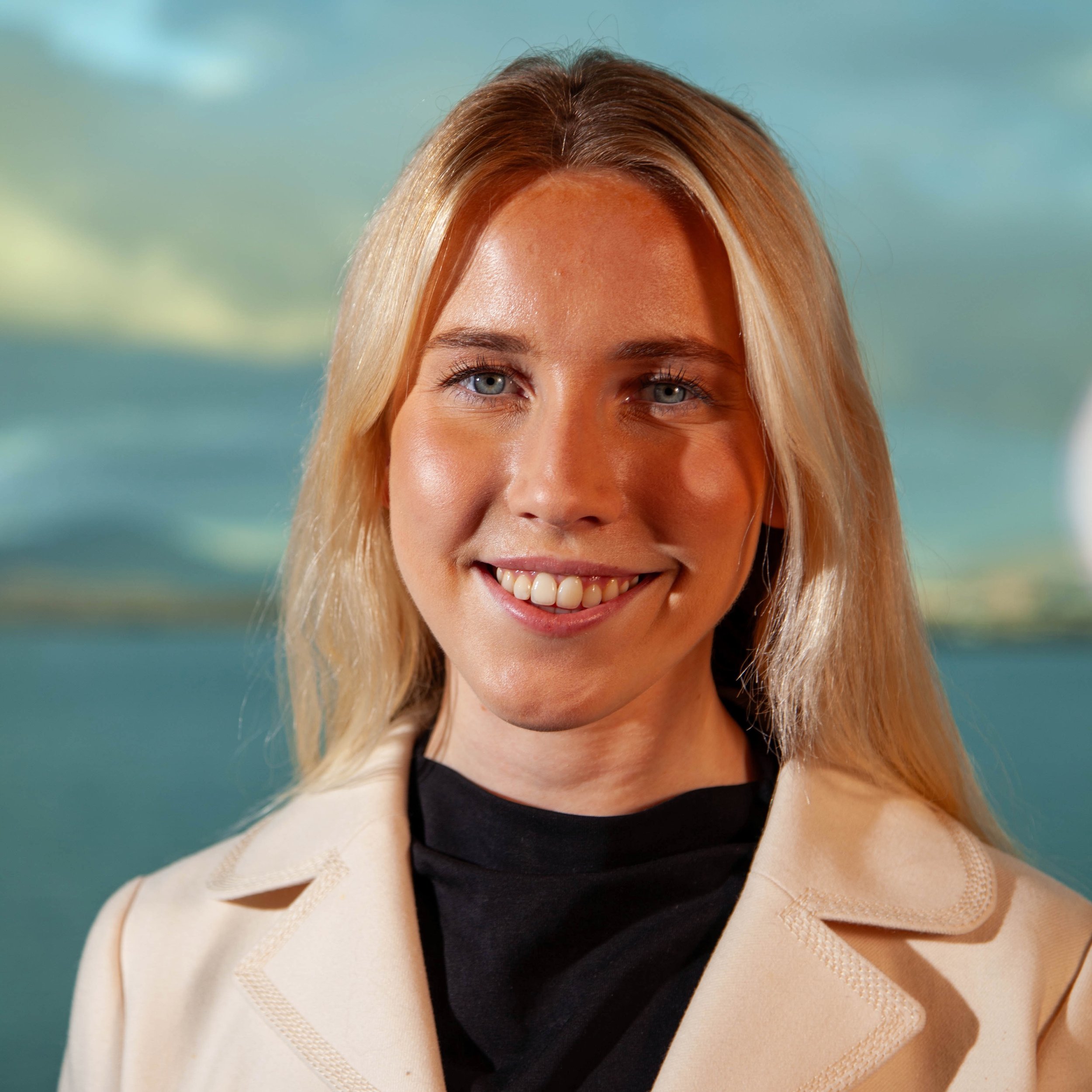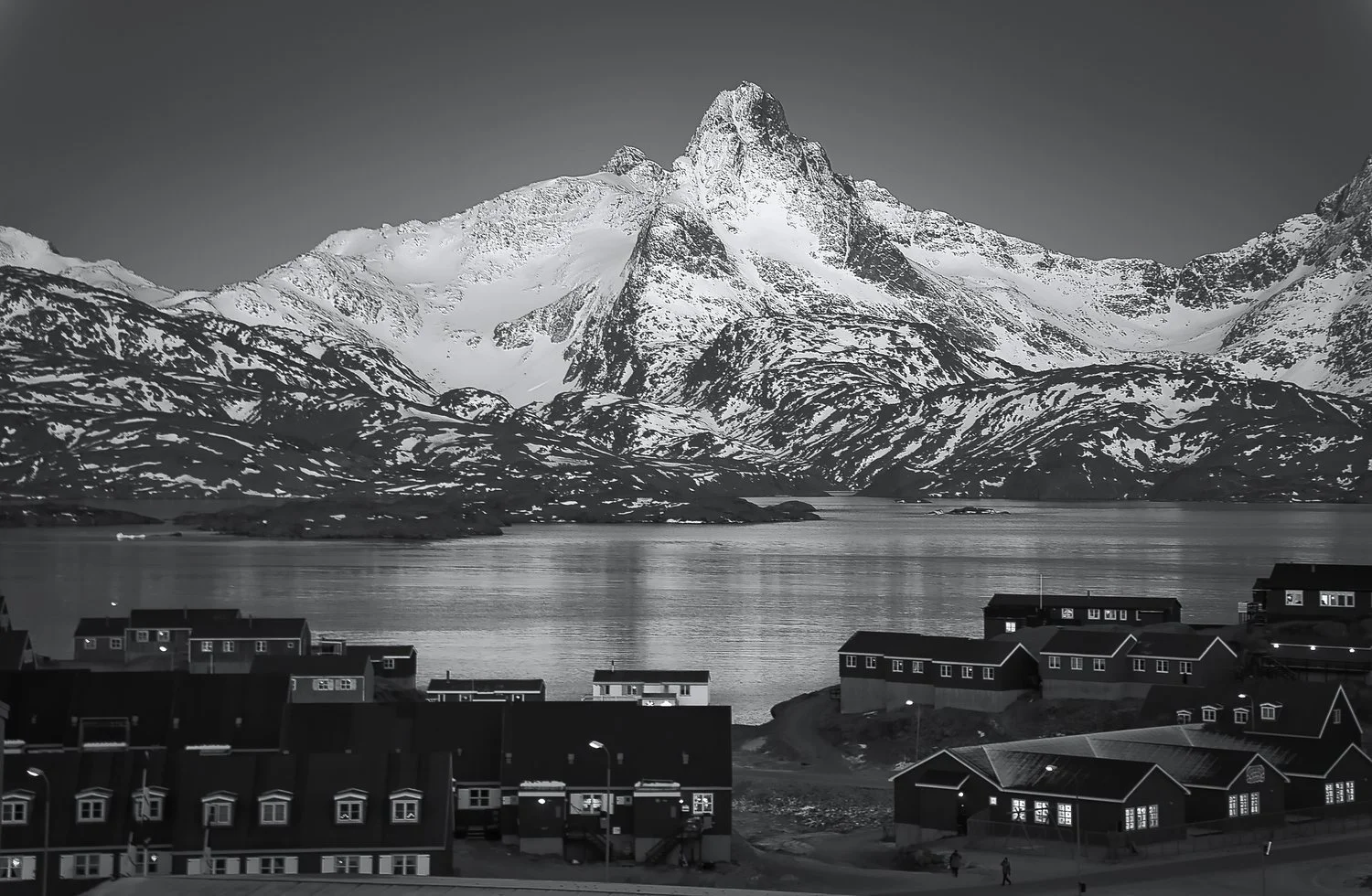JONAA Dialogues´23
FUTURE KEEPERS OF THE HIGH NORTH
Writers/Interviewers: Nauja Bianco, Vilborg Einarsdottir, Ivor Crotty
Photographs:Ólafur Árdal,
Filming: Heimir Bjarnason
Visual editing: Ines Piątkowska, Ólafur Árdal
Graphics: Auður Elísabet Jóhannsdottir
October 2024
Thiis content is a part of the Future Keepers of the High North series. Produced by a dedicated JONAA editorial team on both sides of the North Atlantic and initially supported, in part, by JONAA INITIATIVE Inc. and NORA, Nordic Atlantic Cooperation, an intergovermental organization under the Nordic Council of Ministers.
Meet some true Future Keepers of the High North, the talented and engaged young people from Canada, Greenland, Sweden, Iceland, the United States, and Norway who participated in the JONAA Dialogues led by Arctic affairs specialist Nauja Bianco at the Arctic Circle Assembly in 2023.
They attended the Reykjavik conference for reasons, as diverse as the countries, communities, and agendas they represented: academic studies, research, business development, environmental activism, Indigenous issues, science, culture, and ocean pollution awareness. Because these Future Keepers had not met before, it was all the more interesting to witness their shared common sense approach and overall unified vision regarding the “big picture” for the future of their Arctic. The part of the planet where they want to live and want to protect and develop so future generations can do so too.
On some issues these brilliant young people were hopeful, even optimistic, for changes being made that would strengthen and sustain life in the Arctic. On other issues, they were less hopeful. Some expressed a feeling of urgency for their generation to be included and given more seats at decision-making tables. For the old guys to seriously start listening.
Watch the dialogue sessions for more, and read on about their individual priorities.
Future Keepers of the High North at the Arctic Circle Assembly ‘23. Sitting: Kristen Tanche, Deheno First Nation from Northwest Territories in Canada, attending as Jane Glasson Northern Fellowship program and Gordon Foundation program - Nukarleq Ivalo Olsen Jeremiassen from Greenland and student of public health at the University of Aarhus - Kate Tucker from Canada, a student doing health research at the University of New Brunswick. Standing: Alma Linke Nilsen from Sámpi-Sweden, a student at the University of Luleå - Jillian Verbeurgt from Canada, co-founder of “GreenBytes” in Reykjavik - Veslemøy Mantor from Norway, student of Arctic marine ecotoxicology at Arctic University in Tromsö - Finnur Ricart Andrason from Iceland, chair of the Icelandic Youth Environmentalist Association and a B.Sc. in Global Sustainability Science from Utrecht University. JONAA©Olafur Ardal
Watch Session 1
Watch Session 2
We asked the JONAA Dialogues ‘23 participants to name the Arctic issues they personally felt most important to see addressed in the near future:
Veslemøy Mantor. JONAA©Olafur Ardal
Substantial limitations on pollution - and country leaders who are both empathetic and humble
Veslemøy Mantor,Norway
“Limiting pollution would be highest on my list of priorities for the Arctic. To see actual measures taken that place substantial limitations on pollution, everything ranging from visible plastics to all the invisible chemicals,” says Veslemøy Mantor, who studied Arctic marine ecotoxicology at Arctic University in Tromsö, Norway.
“Of course, limiting pollution of any kind everywhere in the world is important for everyone! But for the Arctic, maybe even more so, as the Arctic has been described as a “sink” for global pollution. Furthermore, science has shown that chemical pollution that reaches the Arctic can quickly end up in higher numbers of animals, including humans, as the Arctic biota depends on a lipid-based food web.”
“It is worrying when a country like Norway allows seafloor mining in arctic waters despite a lack of knowledge of the area and the possible consequences.”
“Secondly, I hope for the future heads of state, and influential leaders to be both empathetic and humble. I believe those are the human qualities most needed for they are the strongest tools to reduce future conflicts, which could be inevitable due to the climate crisis.
Lastly, I hope we continue to expand our knowledge and learn more about the ocean and the Arctic. Despite all the science and research, there is still so much that we do not know.
It is worrying when a country like Norway allows seafloor mining in arctic waters despite a lack of knowledge of the area and the possible consequences. But what we do know is that the benthic community is a crucial component of marine life. So, we have valid reasons to worry when permits are issued for activities that may have serious consequences for marine life and a fragile environment.”
Empathy from our consumerist West for communities vulnerable to climate crises, fossil fuels a thing of the past - and the doughnut economy implemented
Finnur Ricart Andrason, Iceland
“Looking 10 years ahead, I would love for empathy to be the guiding principle in all societies worldwide. If we all practice more intentional and proactive empathy towards others, I believe the world will be a better place. That our decisions would be more mindful of the various communities around the world that have different needs and circumstances that we do,” says Finnur Ricart Andrason, a graduate in Global Sustainability Science. He attended the ACA as chair of The Icelandic Young Environmentalist Association, one of his many leadership roles in the youth climate movement, e.g., as Iceland’s UN Youth Delegate on Climate Change.
“This empathy must be applied within our local communities AND also to remote communities we have no connection with. To take a concrete example, those of us living in Western and highly consumerist countries must have more empathy towards the communities on the front lines of the climate crisis, i.e., the small island states, the vulnerable coastal communities, and the hundreds of millions of other people living in places highly vulnerable to the impacts of climate change.”
“There is a dire need for us, particularly in Western countries, to rid ourselves of harmful values such as individualism and profit maximization at the cost of the environment and people, and adopt new values instead that promote the true meaning of the concept of sustainable development.”
In 10 years’ time, I would also like fossil fuels to be well on their way to becoming a remnant of our past. The science is clear on the need to completely phase out fossil fuels to prevent a climate catastrophe and the transition away from this energy source must have been almost fully completed in the next ten years.
This must, of course, be paired with principles of a just transition, fairness, and equity whereby the most vulnerable countries and communities are assisted in their transition away from fossil fuels. Such assistance can take various forms, anything from developed countries simply funding the transition in less developed countries who don't have the required financial capacity to promoting and supporting the development of just transition schemes to create safety nets for workers in the fossil fuel industry.”
Additionally, 10 years from now, I would like to see most countries around the world adopt and implement the principles of the doughnut economy where our planet's environmental boundaries are respected and people's prosperity is a priority.
There is a dire need for us, particularly in Western countries, to rid ourselves of harmful values such as individualism and profit maximization at the cost of the environment and people, and adopt new values instead that promote the true meaning of the concept of sustainable development. This concept too often gets thrown around without meaning and we need to go back to its definition to understand that many of our Western values are incompatible with it and other values are much better suited. A value-paradigm shift must take place in the next 10 years.”
Redefinition of sustainability and acceptance of Indigenous knowledge as highly scientific and tested for generations in collaboration with nature
Alma Linke Nilsen, Sámpi-Sweden
I would like us to redefine sustainability, both as a word and as a concept. We have to stop dressing up colonisation and exploitation of the earth and its peoples as “making *blank* better”. The definition of insanity is doing the same thing over and over and expecting a different outcome.
Alma Linke Nilsen. JONAA@Olafur Ardal
“I would like us to redefine sustainability, both as a word and as a concept. We have to stop dressing up colonisation and exploitation of the earth and its peoples as “making *blank* better. ”
We need to understand the value of Indigenous traditional knowledge and the already existing and fully functioning lifestyles bound to these.”
“This knowledge is highly scientific, not tried in a lab, “in theory,” or on paper, but lived and tested for generations in collaboration with nature and its constant changes. I would like us to redefine sustainability, both as a word and as a concept. We have to stop dressing up colonization and exploitation of the earth and its peoples as “making *blank* better.” The definition of insanity is doing the same thing over and over and expecting a different outcome.”
“We need to reduce violence, all types of it. The list could be made long. However, it does not matter if it is gender-based, racial, age-related, physical, sexual, lateral, or systemic towards yourself or someone close to you, it all needs to go. It is a cliche that bears repeating because of the consequences violence has on both individuals and societies, big and small.”
Kristen Tanche. JONAA©Olafur Ardal
Climate change adaptation measures and culturally relevant mental health services are interrelated and should be prioritized
Kristen Tanche, Deheno First Nation, Canada
“Over the next ten years, the areas I’d like to see changes in are very much interrelated and focus on climate change adaptation measures and culturally relevant mental health services,” says Kristen Tanche of Deheno First Nation in the Northwest Territories in Canada. Kristen is
“Over the past few years, the Northwest Territories have been experiencing devastating floods and wildfires. Multiple communities were evacuated, with many losing their homes. Our areas have, are, and will continue to experience collective mental health issues. Every spring, when we are prone to flooding, I anxiously wait to see if our community or others will flood again. This summer, I am so afraid that a forest fire will cause my community to evacuate. With climate change disasters, I hope to see communities and governments also adapting their services in mental health to be more proactive in offering services before, during, and after climate change disasters.
“I hope to see more culturally relevant mental health services for Indigenous people, through programs that focus on culture. As someone who experienced Intergenerational trauma from Residential Schools and has been trying to re-learn my culture, I would have benefitted from such services, as would many other Indigenous Peoples.”
Furthermore, many Indigenous Cultures, like my own, are largely tied to the land and natural environment. In my culture we harvest Moose, we use the moose hide for our artwork and traditional clothing, and the meat for our traditional meals. With climate change, melting permafrost, wildfires, and floods, our wildlife will change with the environment, which will impact our culture. I hope to see climate change adaptation measures that preserve cultural practices so that my Indigenous cultural practices survive.
Lastly, I hope to see more culturally relevant mental health services for Indigenous people, through programs that focus on culture. I believe that with more collaboration between community members and organizations, consistent culturally relevant mental services are possible. When I started my healing journey I was not able to access these forms of services.
As someone who experienced Intergenerational trauma from Residential Schools and has been trying to re-learn my culture, I would have benefitted from culturally relevant mental health services, as would many other Indigenous Peoples.”
Nauja Bianco was born and raised in Nuuk - the capital of Greenland. She is partly Greenlandic, and partly Danish. Her ancestral father’s side is from the area of Tasiilaq in Eastern Greenland while her ancestral mother’s side is from Klitmøller, Denmark (also called “Cold Hawaii”). She has a master’s degree in Political Science from the University of Aarhus, Denmark, and Sciences Politique á Lille, France supplemented with communication. Most of her career has been centered around Greenland, the Arctic, the Nordic countries, and the EU within international relations, foreign and security policy, and diplomacy. Besides Greenland, she has lived in the USA; Brussels, Belgium; Toronto, Canada, and now lives in Copenhagen, Denmark. In August 2020 she was appointed CEO of the Greenlandic House and the North Atlantic House in Odense, Denmark. The Greenlandic House is a platform for educational counseling of Greenlandic students in Denmark, social work and counseling of Greenlanders living in Denmark, and cultural exchange. The North Atlantic House is a cultural house displaying arts and culture from the North Atlantic countries of Iceland, the Faroe Islands, and Greenland through exhibitions, events, debates, and much more. Nauja has been a contributing member of JONAA’s advisory board since 2018.
The Future Keepers series is produced by a dedicated JONAA editorial team on both sides of the North Atlantic. The series was supported initially, in part by JONAA Initiative Inc., and NORA, an intergovernmental organization under the regional cooperation program of the Nordic Council of Ministers, focusing jointly on Iceland, Greenland, The Faroe Islands, and coastal Norway. Like many of the projects made possible by NORA in recent years, the Future Keepers of the High North focuses on the younger generations.


























